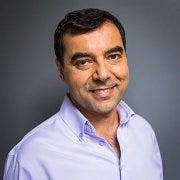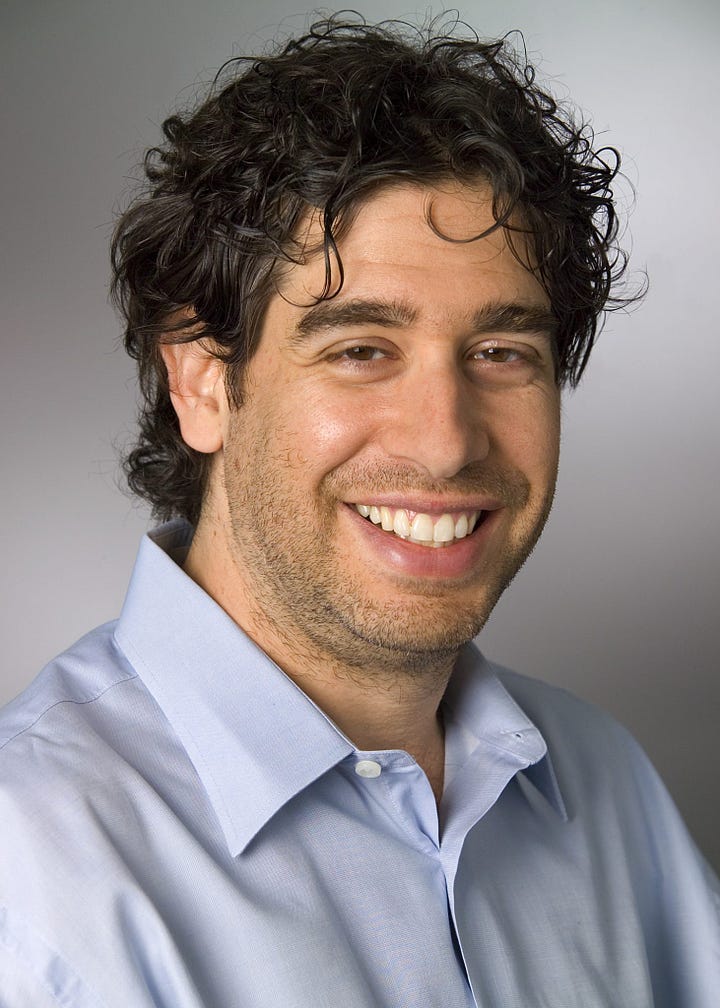Mobileye at CES
Mobileye was acquired by Intel in 2017 for roughly $15B, and spun out as an independent company about three months ago, making it probably the largest Israeli company by market cap. Prof. Amnon Shashua, founder and CEO of Mobileye, gave a presentation at CES last week. He shared his views on the state of the autonomous driving industry and gave some updates on Mobileye’s progress. (full disclosure: my brother works for Mobileye).
The Israeli media made sure to call out his previous promises about launching a fully automated robotaxi service in Tel Aviv by 2022 (which obviously did not happen). Shashua explained that while the sentiment pendulum has swung to the skeptic “no AV before 2050” side, he thinks that their technology creates a viable path to scale up Autonomous Vehicles in the near future. I’ll make sure to let you know as soon as something is launched in Tel Aviv.
In terms of business strategy, it sounds like Mobileye have shifted their plan from building their own robotaxi service (which was the reasoning behind the Moovit acquisition back in 2020), into licensing their tech to partners. Shashua claims that the challenge in launching a robotaxi service is no longer technical, since it is limited to a specific metropolitan area. It is at this point mainly a business challenge of building a profitable service and establishing a customer base. There are a number of deals and POCs that were announced.
There are still technical challenges on the Consumer AV front though, since the cars are not limited to any specific geographies. Mobileye takes an incremental approach, introducing a portfolio of products that are meant to gradually automate more and more of the driving tasks over time.
Taking It To The Bank
While some of America’s most successful entrepreneurs were engaging in a “billionaire space race” in 2021 (between SpaceX, Blue Origin, and Virgin Galactic), a somewhat similar race is developing amongst some of Israel’s successful entrepreneurs. Only with a goal not as ambitious as launching a rocket to space and landing it back safely. The Israeli version is a race to build a digital bank.
Outside of being the founder and CEO of Mobileye, Prof. Shashua is also a co-founder of AI21 (which I’ve mentioned in edition #5), and the founder of ONE ZERO Digital Bank, the first bank to open in Israel in over 40 years. Self-Driving Cars plus the “Israeli OpenAI” plus a digital payments company - the only things missing to qualify as the Israeli Elon Musk are buying a social network and launching rockets into space.
How exciting was it to learn that in addition to the banking license earned by One Zero in 2019, another banking license was granted in late 2022. Another digital bank was born in Israel - Esh (Hebrew for “fire”), founded by Nir Zuk (founder of Palo Alto Networks).
Esh just raised ~$30M at $500M valuation from Clal (one of Israel’s lead financial institutions), and is run by Yuval Aloni as CEO, who is the former Israel Securities Authority chairman.


Amnon Shashua and Nir Zuk are trying to challenge the Israeli bank duopoly of the last 100 years. In a country with a limited TAM of less than 10 million people, and two banks dominating the local market since before the State of Israel was officially founded in 1948, this might turn out to be just as monumental of a task as launching rockets into space.
Link to article about Esh recent funding
Personal Anecdote of the Week: Dinner at Dizengoff Square
Meir Dizengoff was the first mayor of Tel Aviv, and Dizengoff Square was named in honor of his Zina in the 1930’s. Wikipedia says that it was referred to as "the Étoile of Tel Aviv" back then, since it is a roundabout at the meeting of six streets.
My wife and I had dinner at a nearby cafe this week. Dizengoff Square is centrally located - 15-20 minutes walk away from where most tech offices are located (or 6-7 minutes by scooter), and a 10 minutes walk away from the beach. Even so, I didn’t remember it being a nice spot before I moved to San Francisco in 2014. The square has changed a lot since then.


The city was shifting its priorities in recent years, from accommodating cars to focus on pedestrians and urban-friendly modes of transportation, like buses, bicycles and perhaps a robotaxi service in the near future. The square was rebuilt as part of this shift in 2018, and turned into a very popular spot during Covid. With bars and restaurants being closed, people used to hang out together over dinner or drinks all around the square.
We had a great time walking around the square just before sunset. It’s also fun to see how the city transformed a spot that used to be unpleasant to walk through, into such a nice and lively gem.





